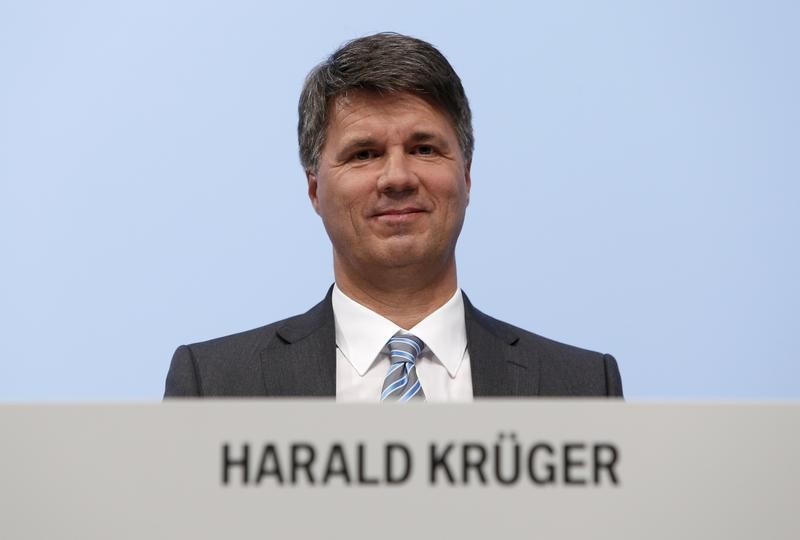By Edward Taylor
MUNICH (Reuters) - Harald Krueger takes over as CEO of BMW (DE:BMWG) after the group's annual shareholders' meeting on Wednesday, a job needing nerves of steel, or maybe carbon fiber given recent trends, as the company battles to keep its lead over Mercedes and Audi.
Under outgoing chief executive Norbert Reithofer, BMW invested between 1.5 billion euros ($1.7 billion) and 2 billion to develop carbon-fiber electric and hybrid cars, according to analysts' estimates.
Saving 100 kilograms (220 lb) in vehicle weight can translate into a cut in fuel consumption of 0.6 liters per 100 kilometers, helping BMW meet stringent anti-emissions rules, consultants at Frost & Sullivan said.
But carbon fiber is expensive, driving up production costs. A kilo of carbon fiber costs around 16 euros, compared with less than a euro for a kilo of common steel, according to Leonidas Dokos, a sales director at Frost & Sullivan.
Metzler Bank autos analyst Juergen Pieper said: "BMW's forte has been efficiency. Can Krueger keep it up as the number of vehicle variants increases and as cars become more complex, particularly with ambitions to use more carbon fiber?"
Since 2005, BMW Group has defended the title of being the top-selling premium auto maker by volume sales, mainly by expanding its presence in emerging markets and diversifying its range into sports utility vehicles.
At the same time, it has maintained profit levels for its autos division at between 8 and 10 percent of sales, in large part thanks to efficiency gains in production of 5 percent every year.
Krueger, a 49-year-old German currently board member for production, has paid a key part in the expansion by increasing manufacturing to record levels, including at factories in China, while expanding the company's range.
MORE CARS
As part of "Strategy Number One" unveiled in September 2007, BMW aimed to make 30 percent more vehicles with the same number of workers, while reducing production costs per vehicle by raising economies of scale in components, drive systems and modules.
A key challenge for Krueger is how BMW can pull off the same trick with cars that are growing more complex and it seeks to make its cars lighter and more fuel efficient.
Carbon fiber weighs less than steel, so using more should help reduce BMW's average fleet fuel consumption. So far it has only made extensive use of it in low-volume cars like the i3 city car and the i8 hybrid.
But scaling up production is a challenge because carbon-fiber parts are difficult to incorporate into a fast-moving high-volume production line.
Carbon-fiber panels cannot be bolted, stamped or welded like steel and aluminum; they need to be baked or glued, processes which are more labor-intensive.
While BMW says it is learning how to make carbon-fiber mass production viable, it remains to be seen whether it will be used in volume models like the 3- and 5-series and as the company sticks to plans to make more than 2 million vehicles a year.

Asked last week by analysts about whether there were plans to significantly scale up the use of carbon fiber in its volume cars, Norbert Reithofer sidestepped the issue, saying: "We have always used a mix of materials in our cars".